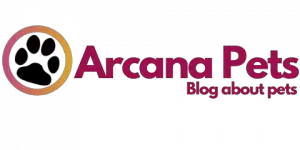I am sure all Labrador owners experienced a nightmare when their dogs stuck their noses where they shouldn’t. Dogs explore the world by sniffing and tasting so it’s not uncommon for them to eat some toxic or harmful substance, item, or food.
If you think that your Labrador ate something harmful, contact the vet immediately. Prepare yourself to respond to some questions like do you know what did he eat and how much. If it’s not possible to contact the vet, search for a local vet hospital or call the Pet Poison HelpLine Center.
How To Handle Your Labrador Eating Potentially Toxic Food or Substance?
If you catch your Lab eating something potentially harmful, act quickly, stop him and remove the rest of the food or substance that he hasn’t eaten yet. The less he eats, the less damage will be. That can be some food like onion, raisins, chocolate but also a wild rabbit, or mushrooms in the woods. Your Lab can also ingest some plastic bag, wrapper, or another non-food item which can cause a lot of trouble.
It would be useful if you save the part of what was he eating so you can share it with your vet.
Next what you need to do is to look for the signs of illness. Check if you Lab:
- vomits
- has difficulty in breathing
- shakes
- has diarrhea or loose stool
- has constipation
- is in pain
- coughs
Note that some of these signs may appear instantly but some of them may emerge in the next 6-12 hours. Do monitor your Lab closely in the next 24-48 hours.
Before you call your vet you should have answers to some questions ready:
- Your Lab age and weight
- What he ate and when
- How much of that harmful food/item he ate
- Does he show some signs of sickness
If you think that your Lab has eaten something toxic and your vet agrees with you, he/she might ask you to try to flush the toxin from your dog’s system by inducing vomiting at your home. The most effective way for that is the usage of hydrogen peroxide ( but don’t do that on your own, do it only if suggested by the vet).
Bear in mind that you should have a sealed and non-expired bottle of hydrogen peroxide for this purpose. An opened hydrogen peroxide will be less effective. Again, don’t induce vomiting in your dog before talking to the vet. Even if you are sure that vomiting is exactly what your dog needs at the moment, it can make the situation worse if you are wrong.
What Food and Other Substances Are Potentially Harmful To Your Lab?
Your Lab doesn’t have to go far away to find something that is really bad and harmful for him
- Table scraps, some type of bones like chicken bones ( very thin )
- Chocolate
- Alcohol
- Coffee
- Raisins
- Peach/ Apricot/ Cherry Pits
- Onion/ Garlic
- Salt
- Milk
- Macadamia nuts
- Yeast dough
- Tea
- Tomato green parts ( leaves and stems)
- Candies
Pay special attention when you go out as there are many things that your Lab may eat in the wild which can harm him
- Wild mushrooms. Even though some people believe that dogs won’t eat poisonous mushrooms in the woods as they can scent poison, this is not true. Some types of mushrooms like Amanita phalloides (death cap) and Inocybe spp. have fishy smells. Most of the Labs find the fishy smell very appealing.
Sings of mushroom poising vary and depend on the type of the mushroom. For example, the Death cap provokes severe GI problems but also can cause kidney and liver failure and Inocybe spp. may cause excessive salivation, watering eyes, excessive urination, diarrhea…
- Wild rabbits. Although it’s not harmful to a dog to eat rabbit meat, most dogs even like to taste rabbit meat, swallowing a wild rabbit can be very dangerous for your Lab. Wild rabbits can carry and pass to a dog a bacteria called Tularemia. If you notice swollen glands, sudden high fever, lethargy, lack of appetite, do consult the vet as your Lab may be infected.
House and garden plants can also be poisonous for your Lab. Check the list made by CCSPCA
Humans’ medication and vitamins may seriously harm your Lab if swollen.
Cleaning products, chemicals, plastics, and other non-food items can cause either poisoning choking and obstructions.
Conclusion
Labradors like other dogs are very curious creatures. They like to discover the world using their senses of smell and taste. This way they can try, swallow many things that could harm them seriously.
Try to keep your dog supervised outside your home. In your home, try to keep all potentially harmful items like forbidden food, chemicals, medicines out of your dog’s reach. If it happens that your dog ingests something he shouldn’t do call a vet or vet hospital immediately as in some cases only a very fast reaction may save your four-legged friend’s life.
